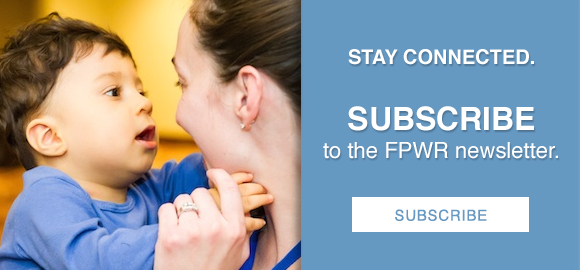The Foundation for Prader-Willi Research announces our first round of Research Awards in 2019 totaling $786,000. FPWR is dedicated to supporting research that advances the understanding and treatment of Prader-Willi syndrome (PWS) and to that end, has awarded over $12,000,000 to research since 2003. On a recent webinar, Dr. Theresa Strong reviewed each of the 8 funded grants, sharing why we're excited about them and what their potential long term contribution could be. You can watch the full 50-minute webinar here or use the links below to watch short 2-minute segments on each specific project.
FPWR PWS Research Grant Recipients, Spring 2019
Genomewide identification of mRNA sites of 2’-O methylation targeted by SNORD116 snoRNAs. Gordon Carmichael, PhD. University of Connecticut. ($54,000) The PWS “SNORD116” genes encode special “snoRNAs”. These small RNAs are thought to chemically modify other RNAs, but their targets are currently unknown. Dr. Carmichael has developed a novel technique to allow detection of the mRNAs that the SNORD116 genes modify. This study is expected to advance the understanding of the normal function of these critical PWS-region genes and inform the development of therapies that target the downstream effects of SNORD116 loss.
LEARN MORE >>
WATCH THE VIDEO >>
CRISPR-mediated molecular dissection of Prader-Willi syndrome (Year 2) Michael Talkowski, PhD, Massachusetts General Hospital ($108,000). (Year 2) This second year of funding allows the Talkowski research team to use CRISPR technology to develop advanced cellular models of PWS. They will engineer precise disruptions of genes in the PWS region, followed by detailed cellular analysis, to better understand the contributions of the different genes in the PWS region.
LEARN MORE >>
WATCH THE VIDEO >>
The functional development of hunger neurons in Prader-Willi Syndrome Marcelo Dietrich, PhD ,Yale University ($107,999). Dr. Dietrich will use cutting edge technology to better understand the development of a certain class of ‘hunger’ neurons (Agrp neurons) across the lifespan of PWS mice. They believe that Agrp neurons, which drive hunger and obsessive compulsive behaviors, may be overactive in PWS, and will evaluate in detail the function of these neurons.
LEARN MORE >>
WATCH THE VIDEO >>
Enhancing satiation signaling to reduce overeating and obesity in Prader-Willi Syndrome Edward Fox, PhD Purdue University ($75,598). Dr. Fox is interested in how the gut sends 'full' signals to the brain, and whether those pathways can be exploited to reduce food intake in PWS. In this project, he will examine whether enhancing satiety signals in a certain area of the brain (the nucleus tractus solitarius, NTS) can increase satiety and reduce meal size in PWS mice.
LEARN MORE >>
WATCH THE VIDEO >>
A mouse model to assess genetic therapies for Prader-Willi syndrome Jim Resnick, PhD, University of Florida ($98,469). Dr. Resnick will develop a mouse model of PWS that allows precise activation/replacement of the missing PWS genes at different times during development and in different tissues. This model will be extremely useful in determining the overall feasibility and promise of genetic therapy for PWS, and will allow the research team to answer questions about the best timing, location and potential side effects of genetic therapy for PWS.
LEARN MORE >>
WATCH THE VIDEO >>
Targeting SMCHD1 to address the underlying cause of PWS and SYS Marnie Blewitt, PhD, Walter & Eliza Hall Institute of Medical Research ($97,200). Dr. Blewitt has found that the protein SMCHD1 is involved in silencing some of the PWS-region genes on the maternal chromosome 15. Here the research team will use patient cells to determine whether eliminating SMCHD1 in the cells allows these PWS genes to become active. This is a proof-of-concept study for a potential genetic therapy for Prader-Willi and Schaaf-Yang syndromes.
LEARN MORE >>
WATCH THE VIDEO >>
Influences of social cognition and reward on ASD symptoms and behaviour in PWS Louise Gallagher, MD ($95,589) Trinity College Institute of Neuroscience, Dublin. Dr. Gallagher is a child psychiatrist who studies social behaviors and social reward circuitry in children with autism and neurodevelopmental disorders. Here, her research team will study the social issues in PWS. Specifically, they will look at how deficits in social cognition deficits may be associated with and may contribute to oppositional behavior, and whether diminished social reward circuitry contributes to behaviors in PWS.
LEARN MORE >>
WATCH THE VIDEO >>
Investigating a new potential target for treatment in Prader-Willi syndrome Lauren Rice, PhD. University of Sydney ($149,228) Dr. Rice and colleagues have shown that there is a decrease in the neurochemical GABA in the brains of individuals with PWS, and this is associated with emotional problems including a propensity for temper outbursts. Here they will used advanced imaging to quantify GABA levels, and test whether a drug can restore GABA to normal levels and improve behavior.
LEARN MORE >>
WATCH THE VIDEO >>








